Understanding the Challenge
Managing social situations without resorting to substances is a challenge faced by many individuals, especially those dealing with social anxiety or recovering from substance use disorders. The reliance on alcohol or drugs as a social lubricant is common, yet it often leads to more harm than good, exacerbating anxiety and health issues. As more people seek healthier ways to engage with others and manage anxiety, understanding effective strategies becomes ever more essential.
Socializing Without Alcohol: Finding Joy in Genuine Connections
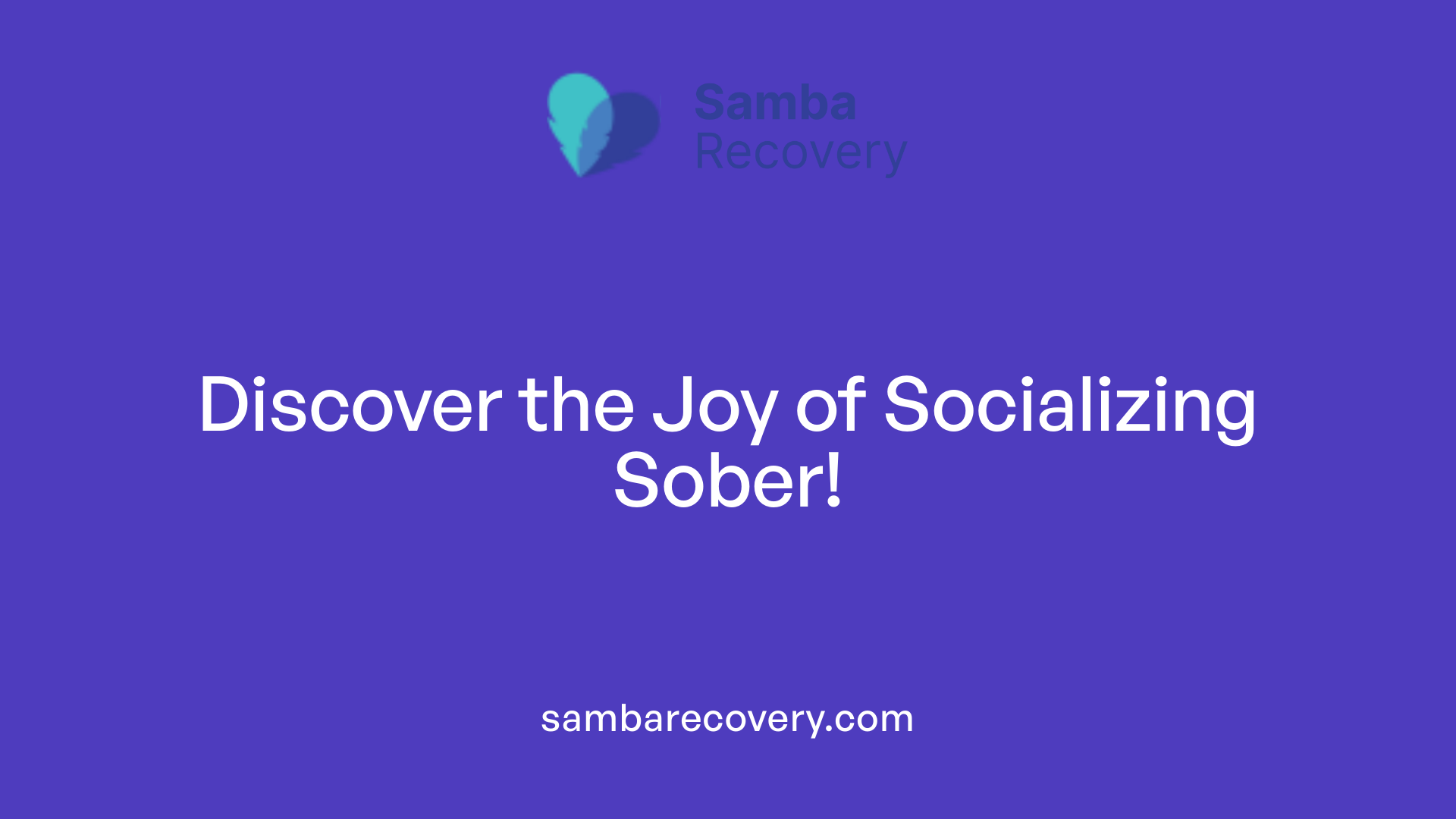
How can I socialize without alcohol?
Socializing without alcohol can be fulfilling by setting clear intentions and opting for nonalcoholic drinks to hold, which helps avoid scrutiny. Engaging in meaningful conversations and participating in activities that don’t center around drinking is essential. Here are some effective strategies:
- Set clear intentions: Decide in advance to enjoy your time without substance use.
- Choose nonalcoholic beverages: Holding something in hand can reduce peer pressure while out with others.
- Engage in meaningful conversations: Asking open-ended questions shifts attention away from yourself and allows for deeper connections.
- Join support groups: Groups like Alcoholics Anonymous can provide camaraderie and encouragement in a sober environment.
- Explore hobbies and interests: Participate in activities such as sports, art classes, or book clubs, which don’t revolve around alcohol.
Engaging in meaningful conversations
Actively participating in discussions can significantly reduce anxiety. To enhance social interactions without alcohol:
- Ask questions to show genuine interest and engage others.
- Practice active listening to make others feel valued and understood, which can lead to richer conversations.
- Share personal stories or experiences to create a comfortable atmosphere where authenticity thrives.
Alternatives to environments centered around drinking
Choosing venues that don’t focus on alcohol is crucial for sober socializing:
| Activity Type | Examples | Benefits |
|---|---|---|
| Fitness & Wellness | Group workouts, yoga classes | Promotes health and encourages camaraderie |
| Art & Culture | Museum visits, art classes | Provides enriching experiences to discuss |
| Outdoor Activities | Hiking, cycling, picnics | Encourages a relaxed atmosphere |
| Volunteering | Community service events | Builds connections and self-worth |
Focusing on genuine connections can enhance the enjoyment of social engagements, creating a positive experience outside the realm of alcohol.
Coping Strategies for Social Anxiety Without Substance Use
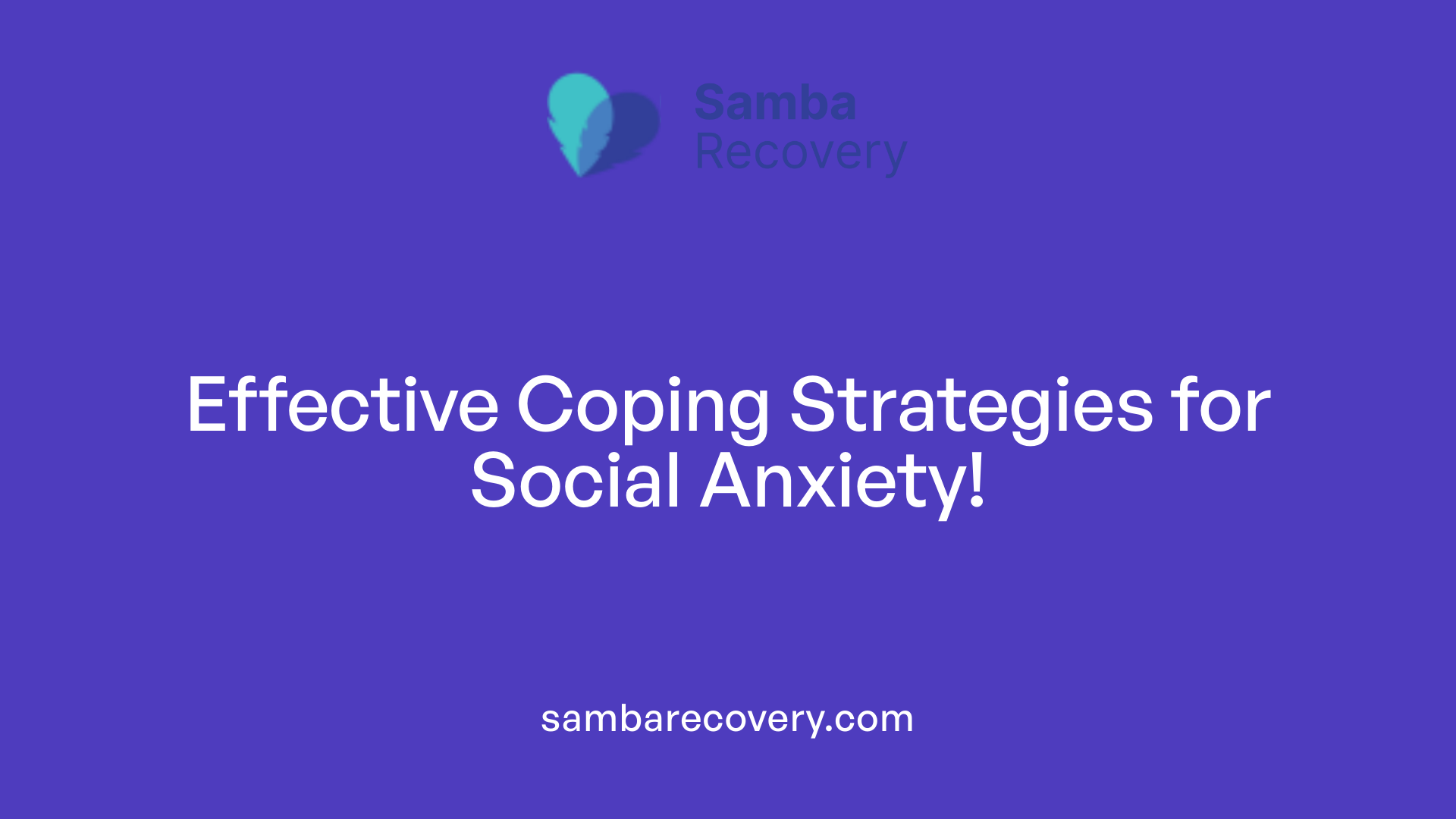
What are some coping strategies for social anxiety without substance use?
Managing social anxiety without resorting to substances involves several practical techniques and supportive methods. Here are some effective strategies:
-
Practice Social Skills in Low-Pressure Settings: Engage with trusted friends or family members in safe environments. This helps to build confidence gradually, making it easier to navigate more challenging social situations.
-
Set Achievable Goals: Break down larger social fears into smaller, accomplishable tasks. By gradually exposing oneself to social interactions, individuals can build up their comfort levels over time.
-
Prioritize Physical Health: Regular physical activity, a balanced diet, and adequate sleep are all significant contributors to improved mental health. Exercise boosts endorphins and reduces stress, helping to lower anxiety levels.
-
Utilize Relaxation Techniques: Implementing practices such as deep breathing, meditation, or mindfulness can effectively alleviate acute anxiety during social interactions.
-
Build and Lean on Your Support Network: Engaging in conversations with supportive friends, family, or peers can help provide necessary encouragement. Joining support groups like Narcotics Anonymous or Alcoholics Anonymous facilitates connection and fosters a sense of community.
Enhancing social skills
Strengthening social skills can significantly aid individuals in feeling more secure during interactions. Techniques like asking open-ended questions, focusing on others during conversations, and being comfortable with imperfection can enhance engagement without fear of judgment. Practicing these skills in smaller, controlled settings can translate into greater confidence in larger gatherings.
Encouraging healthy habits and routines
Establishing a routine that includes physical activity, social interactions, and adequate downtime is crucial. Activities that do not center around substance use—like engaging in hobbies, pursuing new interests, or participating in group sports—can foster a more connected and balanced lifestyle. Developing mindfulness and coping mechanisms are also vital to managing social anxiety effectively without relying on alcohol or drugs.
Maintaining Sobriety in Social Settings
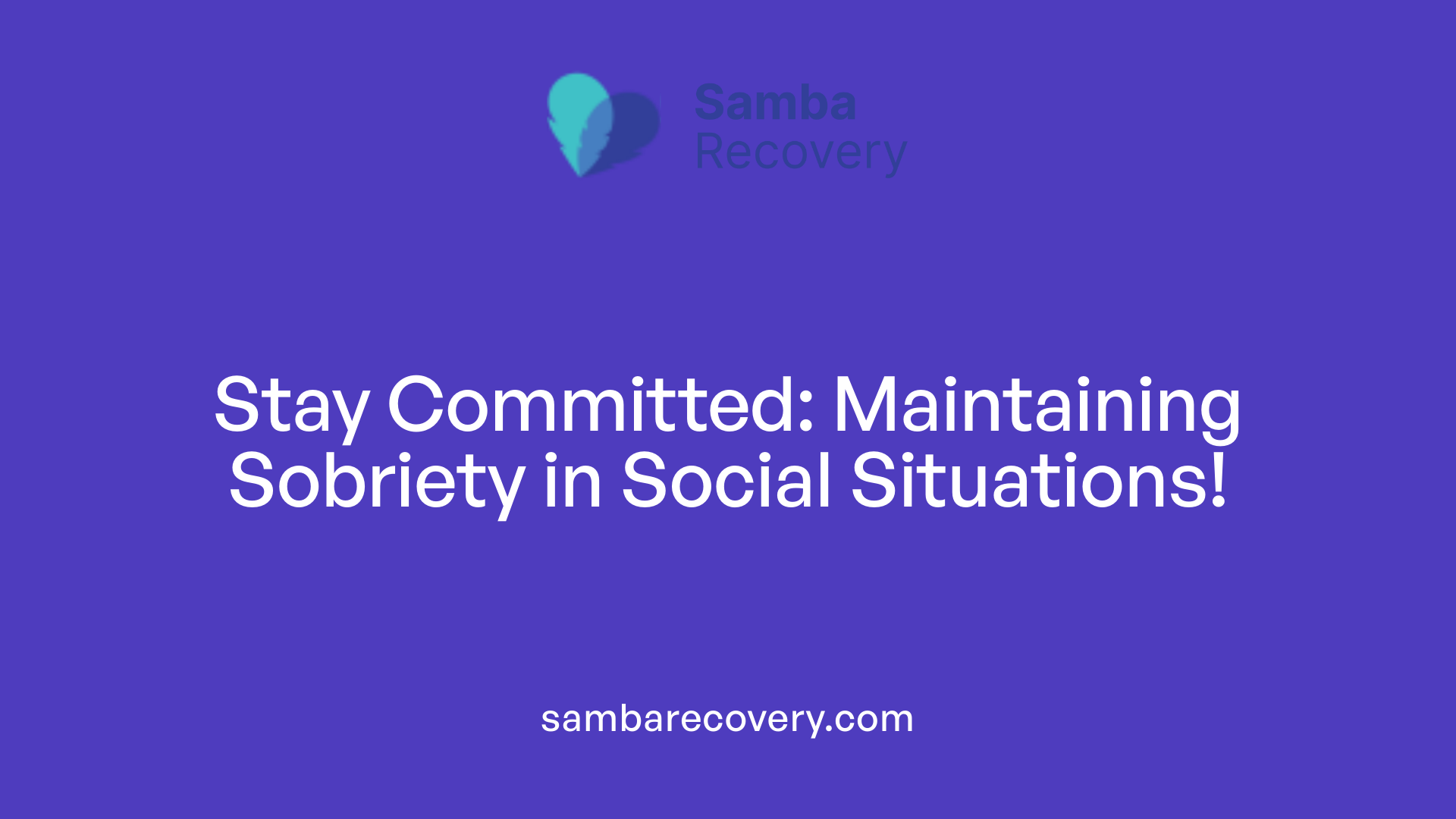
How can I maintain sobriety in social settings?
Maintaining sobriety in social settings requires careful planning and effective communication. Start by developing a strong support system of sober friends who can accompany you to events, making it easier to navigate potential triggers.
Being clear about your boundaries regarding alcohol is crucial. Communicate these boundaries to those around you to ensure they understand your sobriety commitments.
Strategies to uphold sobriety during social gatherings
- Prepare Your Story: Keep responses ready to manage inquiries about your sobriety without feeling pressured to explain.
- Bring Non-Alcoholic Drinks: Having a mocktail or non-alcoholic beverage in hand can help reduce peer pressure.
- Find Alcohol-Free Activities: Engaging in events that don’t center around drinking, like outdoor activities or book clubs, fosters a healthier social environment.
- Limit High-Risk Situations: Steer clear of known triggers, such as places where drinking is the focus.
Creating a supportive environment
Building a supportive network of friends and family is essential. Engage with individuals who respect your recovery journey and can provide accountability. Support groups like Alcoholics Anonymous can also offer a sense of community.
Communicating boundaries effectively
Setting clear boundaries is vital. Be prepared to decline drink offers politely and practice recalling your reasons for sobriety. This clarity can reinforce your resolve and lessen the likelihood of relapsing during social interactions.
Healthier Alternatives to Substance Use for Managing Social Discomfort
What are healthier alternatives to substance use for managing social discomfort?
Managing social discomfort without turning to substances involves several constructive strategies that can make situations easier to navigate. Engaging in substitute activities can create a positive environment. Here are a few ideas:
- Participate in Physical Activities: Join a sports team or gym classes. Exercising not only boosts mood but also promotes camaraderie with others, fostering connections.
- Explore Creative Outlets: Engage in arts and crafts, music, or theater. These activities can provide a sense of achievement and distract from discomfort during social events.
- Volunteer: Helping others enhances your sense of purpose and community involvement, which can alleviate feelings of isolation associated with social anxiety.
Building supportive relationships
Strong relationships are a vital aspect of coping with social anxiety. Consider the following actions to cultivate such connections:
- Communicate Openly: Share your feelings with trusted friends and family, enabling them to understand your struggles and offer appropriate support.
- Participate in Support Groups: Joining groups like Alcoholics Anonymous can foster a sense of belonging among peers who share similar experiences, strengthening emotional resilience.
- Choose Sober Friends: Surrounding yourself with non-drinkers can help mitigate risky situations and reinforce your commitment to staying substance-free.
Mindfulness and stress management
Incorporating mindfulness and stress management techniques can significantly alleviate anxiety. Here are effective methods:
- Practice Mindfulness Exercises: Techniques such as meditation or mindful breathing can center your thoughts and lessen anxiety in social situations.
- Grounding Techniques: Use methods like the 5-4-3-2-1 approach to focus on your surroundings and stay present, which can help reduce feelings of panic or discomfort.
- Healthy Coping Mechanisms: Maintain healthy habits like sufficient sleep and routine physical exercise, which collectively diminish stress and anxiety levels.
By implementing these healthier alternatives, individuals can navigate social discomfort in thriving ways, reducing the need to rely on substances for coping.
Recognizing Triggers and Managing Urges in Social Contexts
Identifying Triggers in Social Settings
Recognizing personal triggers in social situations is an essential step for managing cravings and maintaining sobriety. Common triggers include being around drinkers, revisiting old hangout spots, or feeling isolated. Understanding these factors can help individuals prepare and strategize for social interactions that may pose risks.
Techniques to Manage Urges
Effective techniques for managing urges can include:
- Mindfulness Practices: Engaging in mindful breathing or grounding exercises, such as the 5-4-3-2-1 method, helps ground individuals in the present moment, reducing anxiety.
- Engaging in Activities: Finding alternative coping mechanisms like exercise, hobbies, or volunteer work distracts from cravings and promotes healthier interactions.
- Support Networks: Building a support system, including sober friends or peer groups like Narcotics Anonymous, can provide encouragement and reduce feelings of isolation.
Educational Resources and Support Systems
Various resources exist for assisting individuals in recognizing triggers and managing urges during social situations. For example, Prairie View A&M University offers educational outreach on drug and alcohol awareness, emphasizing counseling and treatment options. Understanding personal risk factors and engaging in stress management can be pivotal in resisting substance-related urges. Participating in healthy activities can also foster self-confidence, ensuring that navigating social pressures becomes a more manageable endeavor.
| Topic | Detail |
|---|---|
| Identifying Triggers | Recognize places and people that encourage substance use, like old friends or bars. |
| Techniques to Manage Urges | Mindful practices, engaging activities, and support networks can help control cravings. |
| Educational Resources | Institutions like PVAMU provide outreach, counseling, and activities to aid in understanding risks related to substances. |
Improving Social Interactions Without Alcohol or Drugs
How can I improve social interactions and manage anxiety without using alcohol or drugs?
To enhance your social interactions and manage anxiety effectively without relying on alcohol or drugs, consider these strategies:
Communication Skills
- Active Listening: Engage with others by fully concentrating and responding thoughtfully. This helps shift focus from oneself to the conversation, alleviating anxiety.
- Asking Questions: Utilize open-ended questions that foster dialogue, moving the spotlight off you and making conversations more engaging.
- Articulating Needs: Clearly express your boundaries regarding substance use to friends and acquaintances, fostering understanding and support.
Planning for Social Settings
- Prepare Non-Alcoholic Alternatives: Bring your own non-alcoholic drinks, like mocktails, to social events. This not only helps you feel included but also keeps you accountable.
- Exit Strategy: Have a plan in place for leaving if you feel overwhelmed. This could involve arranging a ride home or gracefully stepping out if the atmosphere becomes too intense.
- Choose Activities Wisely: Opt for social gatherings that do not center around alcohol, such as book clubs, sporting events, or outdoor activities.
Building a Support Network
- Sober Friends: Surround yourself with individuals who respect your choices and share similar goals of sobriety. Their support can be invaluable during challenging moments.
- Engaging in Support Groups: Programs like Narcotics Anonymous provide community support, allowing you to connect with individuals facing similar struggles. This reduces feelings of isolation.
These strategies collectively empower you to navigate social interactions with confidence while maintaining your commitment to sobriety.
Consequences of Using Substances to Cope with Social Situations
What are the consequences of using substances to cope with social situations?
Using substances to cope with social situations can lead to a detrimental cycle of dependency. While substances may temporarily alleviate fears of negative evaluation, their effects can quickly wear off, often worsening underlying anxiety and symptoms related to social anxiety disorder. This leads individuals to rely increasingly on substances in social settings, potentially igniting a cycle that is hard to break.
Impact on mental and physical health
The impact on mental health can be profound. As individuals engage in self-medication through alcohol or drugs, they may experience heightened symptoms of anxiety, regret, and embarrassment. Physically, excessive substance use can lead to long-term health issues, including dependency and withdrawal symptoms that further exacerbate anxiety, creating a vicious cycle.
Relationship dynamics
Substance use can substantially damage personal relationships. Using alcohol or drugs can lead to lost friendships and create conflicts within family and marital relationships. Trust may erode due to dishonesty around consumption, and potential co-dependency may emerge as friends and family adjust to the self-medicating behavior of the individual.
Long-term effects of substance use
Over time, reliance on substances for social coping can introduce severe consequences, such as financial difficulties and emotional instability. Individuals often find themselves in a cycle of reliance, where the need for substances overshadows the development of healthy relationship dynamics, deterring them from fostering fulfilling connections with others. Embracing sobriety and seeking the support of understanding social circles can promote healthier interactions and improve overall mental well-being.
Support and Treatment Options for Social Anxiety and Substance Use Issues
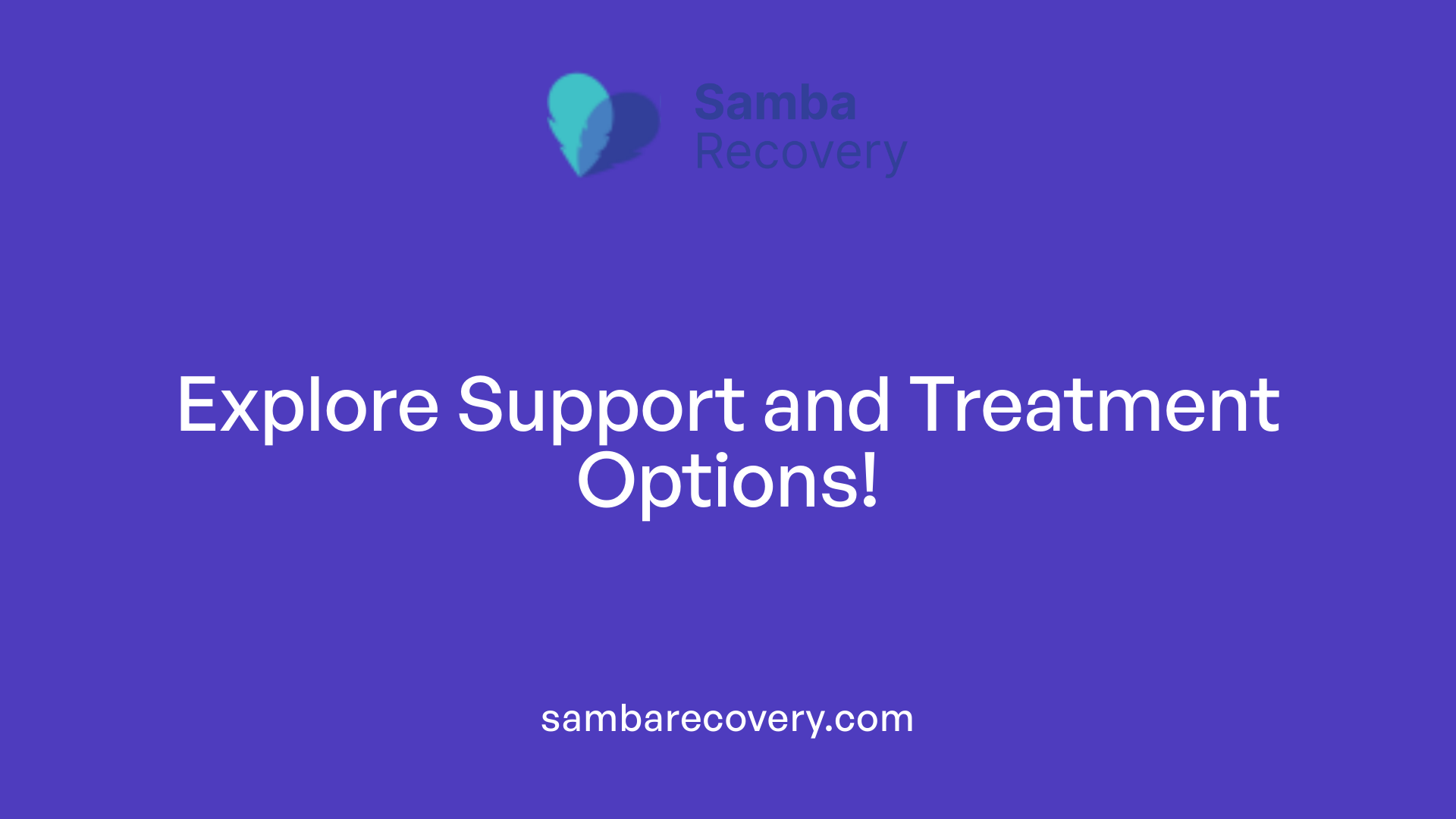
What support and treatment options are available for social anxiety and substance use issues?
Support and treatment options encompass a comprehensive approach involving psychotherapy and medications, lifestyle changes, and community backing.
Psychotherapy and medications
Cognitive Behavioral Therapy (CBT) is a highly effective psychological treatment for social anxiety disorder, helping individuals identify and reframe negative thought patterns. Simultaneously, medications like selective serotonin reuptake inhibitors (SSRIs) and serotonin and norepinephrine reuptake inhibitors (SNRIs) are often prescribed to alleviate anxiety symptoms.
Lifestyle changes
Incorporating exercise into daily routines can significantly enhance mood and reduce stress, while relaxation techniques, such as meditation and deep breathing, can effectively calm an overactive mind. Alongside physical health, maintaining a balanced diet is crucial for overall wellness.
Community and professional support
Engagement in support groups, such as Narcotics Anonymous or Alcoholics Anonymous, offers crucial social support for individuals facing addiction and social anxiety. These groups facilitate connection with others who understand similar struggles, alleviating feelings of isolation. Beyond peer support, consulting healthcare providers ensures personalized treatment plans that address both anxiety and any underlying health issues.
| Support Options | Description |
|---|---|
| Psychotherapy | Such as CBT, helps reshape unproductive thought patterns. |
| Medications | SSRIs and SNRIs can manage anxiety effectively. |
| Lifestyle Changes | Exercise, stress-reduction methods, and healthy eating contribute greatly. |
| Support Groups | Facilitate discussions and provide understanding, enhancing emotional healing. |
Integrating these elements fosters a holistic approach to managing social anxiety and substance use disorders, empowering individuals through recovery.
Maintaining a Social Life After Reducing or Quitting Substance Use
How can I maintain a social life after reducing or quitting substance use?
To successfully navigate your social life after reducing or quitting substance use, reframe your engagement by choosing alternative gatherings that don’t center around alcohol or other substances. Consider activities like book clubs, hiking trails, or coffee meet-ups that promote connection without the pressures of substance use.
Personal boundaries and triggers
Identifying your personal triggers is essential. These may include specific environments or people that encourage substance use. Communicate openly with friends and family about your boundaries, letting them know what situations you might find challenging. Having exit strategies for these occasions can also help immensely — plan how to gracefully leave a social gathering if you begin to feel uncomfortable.
Building a new social circle
Building a supportive network is crucial. Seek out friends who respect your choices and may even share your commitment to sobriety. Engaging with recovery groups can connect you with individuals who share similar experiences and can offer encouragement. Establishing a new social circle can reduce feelings of isolation and help reinforce healthy interactions as you maintain your sobriety.
Embracing a Healthy Lifestyle for Long-term Sobriety Success
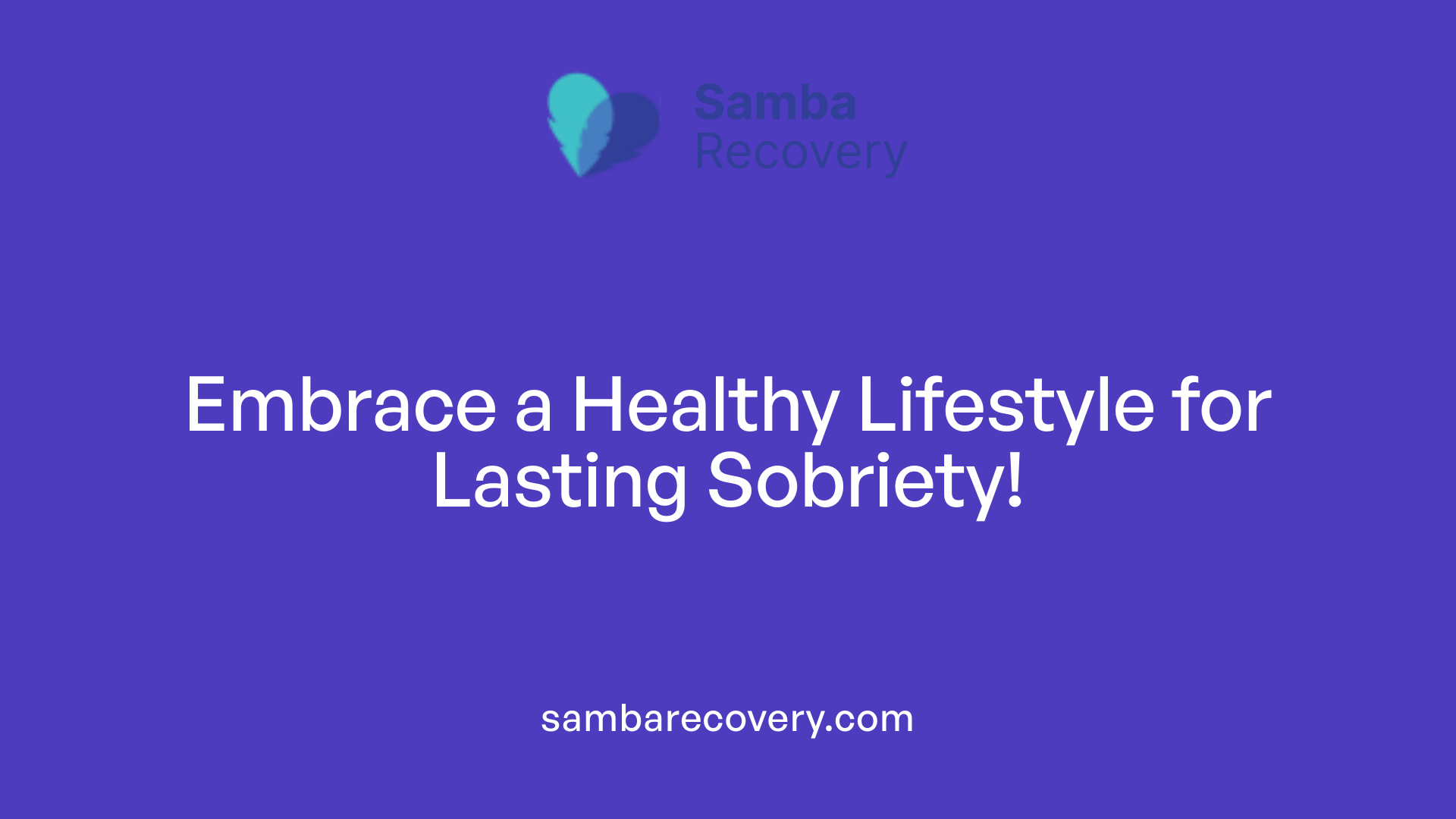
Importance of Physical Wellness
Quitting drugs not only enhances physical health but also improves overall well-being. Regular exercise, for instance, has been shown to reduce anxiety and stress, improve mood, and enhance sleep quality. These benefits can significantly aid in recovery by fostering better energy levels and a more positive self-image.
Fostering Mental Resilience
Mental health plays a crucial role in maintaining sobriety. Developing coping strategies, such as mindfulness and relaxation techniques, empowers individuals to manage cravings and anxiety during social situations. Identifying triggers related to substance use, along with seeking support from groups like Narcotics Anonymous, can further bolster mental resilience.
Building a Fulfilling Sober Life
Creating a fulfilling life without substances is vital for long-term success in recovery. Engaging in meaningful activities, such as volunteering or pursuing new hobbies, can foster new friendships and serve as healthier distractions. Furthermore, surrounding oneself with supportive, sober friends is essential for accountability and comfort in social environments.
| Area of Focus | Benefits | Examples |
|---|---|---|
| Physical Wellness | Improved energy levels, mood, and appearance | Regular exercise, proper nutrition |
| Mental Resilience | Coping with cravings, anxiety management | Mindfulness, support groups |
| Building a Fulfilling Life | New friendships, engaging activities | Volunteering, hobbies |
A Path to Empowered Sobriety
Managing social situations without resorting to substances is not only achievable but can also be a rewarding journey. By focusing on self-awareness, enhancing communication skills, and leveraging support systems, individuals can navigate social settings with confidence and grace. Embracing sobriety opens the door to authentic connections and a healthier, more fulfilling life. As you engage in this journey, remember that you are not alone. There are numerous resources and support available to help guide you, ensuring that you continue to thrive both socially and personally without the need for substances. Empower yourself to embrace sobriety, enrich your social interactions, and improve your mental well-being.
References
- How to reduce or quit drugs – Department of Health and Aged Care
- Social Anxiety and Alcohol | Gateway Foundation
- Substance Use Disorder (SUD): Symptoms & Treatment
- How to Stop Self-Medicating Depression, Anxiety, and Stress
- How to Manage Social Anxiety Without Alcohol
- Alcohol and other substance use to cope with social anxiety
- 11 Tips To Help You Stay Sober – WebMD
- Handling Social Situations While Staying Sober
- Managing Social Anxiety Without Alcohol – Clear Life Recovery






